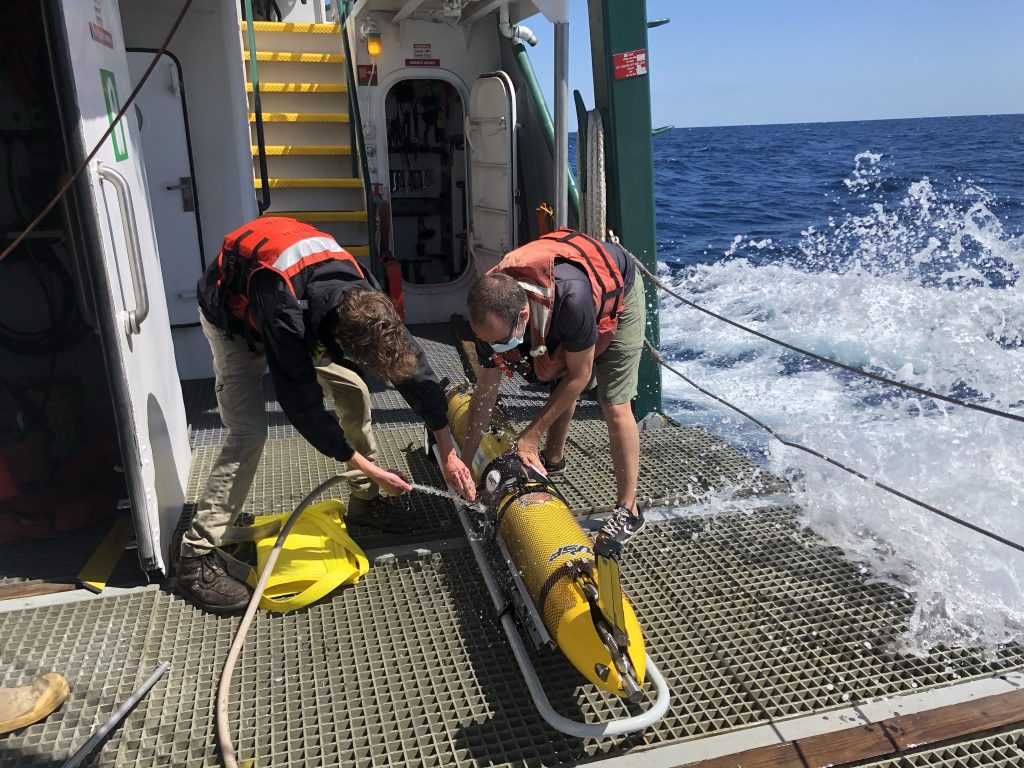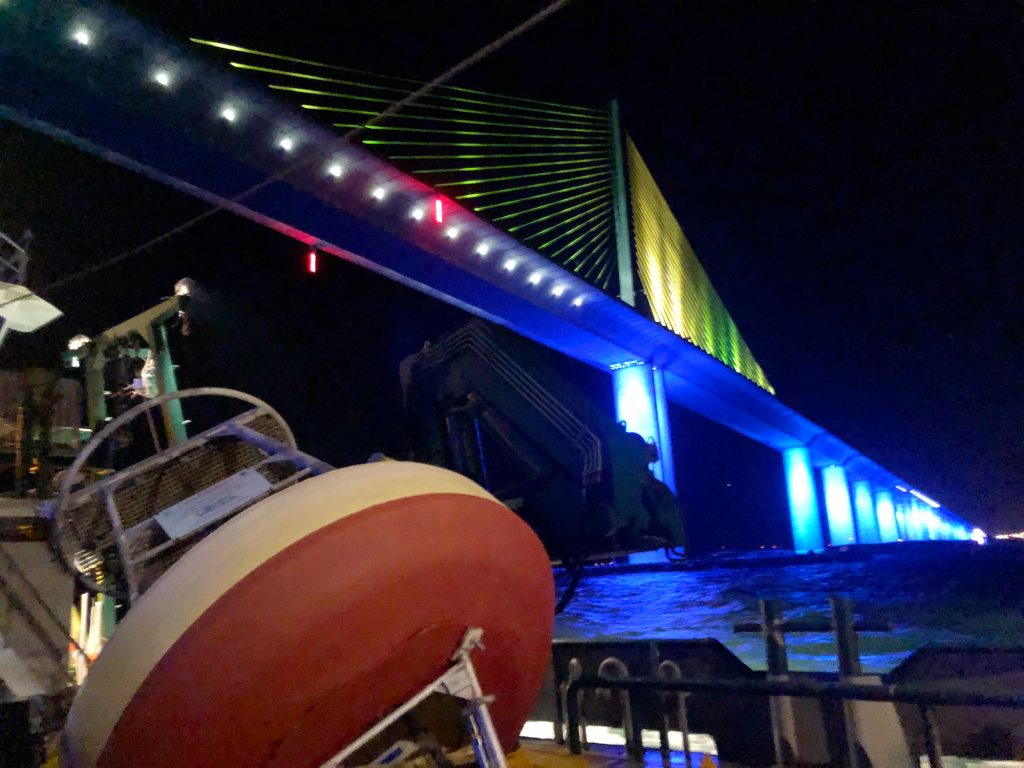In March 2021, the University of South Florida Coastal Ocean Monitoring and Prediction System (USF COMPS) headed to sea on the R/V Weatherbird to replace the C10 buoy off the coast of Sarasota, Florida. This buoy provides real time data on water velocity, wind speed, air temperature, water temperature, salinity, and more. Buoys are our real-time eyes on the water and keep mariners safe by providing the true local conditions, while also providing critical data for weather and circulation modeling.
The team also recovered the Gansett glider for the University of South Florida glider team. The glider mission was funded by FWC Fish and Wildlife Research Institute to collect data for red tide prediction efforts. The glider was equipped with a Conductivity, Temperature, and Depth sensor, fluorometer sensor, a dissolved oxygen sensor, a Vemco receiver to record tagged animal movement data, and an echosounder.
“Seas were rough but with a great captain, crew, and hard-working science party all work was accomplished safely, the new buoy is transmitting all data hourly, and the glider is safe and sound back at home,” said researcher Jay Law, USF COMPS.
On the next USF COMPS research cruise, the team will swap out the C12 buoy. This buoy will also include an acoustic receiver which tracks tagged fish so researchers can better understand seasonal fish migration.. The next buoy swap is scheduled for late spring/early summer, weather permitting.
Thank you to the crew of the R/V Weatherbird and the University of South Florida Ocean Circulation Lab for their teamwork in executing a challenging cruise.
Images and video credited to Jay Law, University of South Florida Coastal Ocean Monitoring and Prediction System
Related news
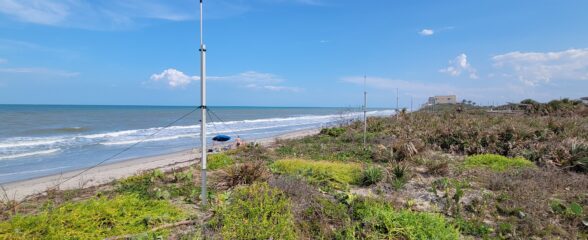
Measuring Surface Currents on the East Coast of Florida with High Frequency Radars
The Florida Institute of Technology and UGA Skidaway Institute of Oceanography recently installed four high frequency radars on the east coast of Florida. These systems measure the speed and direction of ocean currents, which is helpful for search & rescue operations and tracking marine debris.
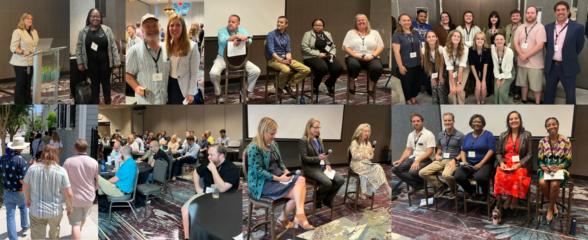
The 2024 SECOORA Annual Meeting: A Huge Success!
The SECOORA Annual Meeting was held in Charleston, South Carolina May 7th - 8th. Thank you to those who attended, we hope to see you again next year!
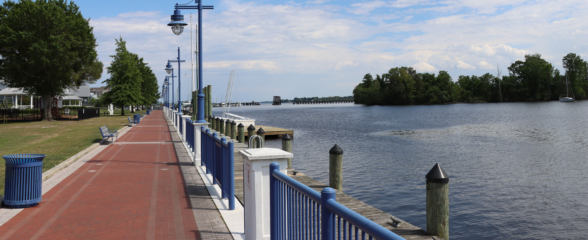
SECOORA Partners with North Carolina Communities to Install New Water Level Sensors
SECOORA has partnered with North Carolina Public Safety, Beaufort County Emergency Services, and the town of Belhaven to install new water level stations in two flood-prone North Carolina communities.
